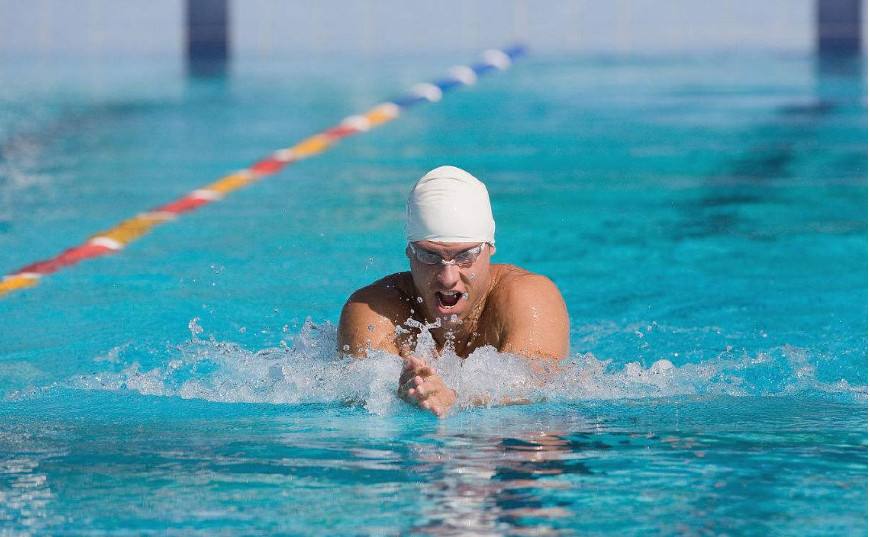Can You Get Sick From Swimming In Cold Water? What You Need To Know

Sudden falls into cold water or swimming without the proper safety gear and measures can be lethal. Can you get sick from swimming in cold water? Even the most skilled swimmers can become ill from cold water shock and hypothermia, which can affect people of all ages and levels of fitness. These ailments may impair a person’s body’s capacity to operate normally, raising their risk of drowning.
Even though many people stop swimming in the winter, other water sports like boating, kayaking, and fishing are still quite popular. Even when a person has no intention of getting wet, drowning is still a risk when playing in or near water.
Table of Contents
When Is It Too Cold?
How cold is too cold? is the first query we must address before delving into variables. Here are several figures you should become familiar with to assist you answer this:
Temperatures below 77F (25C) become harmful if your body is submerged in water but you are not actively swimming.
- 98.6F (37C) an appropriate body temperature.
- 95F (35C) The onset of hypothermia.
- 85F (29.4C) temperature of a public pool.
- 77-82F (25-28C) the water temperature for Olympic competition.
- 70 F or below (21C) Exercise caution if the water feels frigid.
- lower than 40F (4.4C) The water is ice cold.
The general guideline is that any temperature below 77F (25C) starts to become dangerous because we are swimming in chilly water. If you’re just having fun in the water, 85°F (29.4°C) is a pleasant, chilly temperature for you. 77-82F (25-28C) is the ideal temperature for lap swimming, and if the water gets to 77F (28C) or below (often in an outdoor environment), it’s time to take some precautions, which we shall cover below.
How Long Is Swimming In Cold Water Safe?
two swimmers are swimming in different lanes outside in the bitterly cold during a winter lap swim.
You should get out of the water right away if you still feel excessively cold after jumping in and swimming strenuously for around 10 minutes. The ability to tolerate cold water varies by swimmer size (adult vs. child), habitat (inside vs. outdoor), and equipment (wetsuit or wearing a bare swimsuit).
How To Avoid Getting Sick From Swimming?
Do not swallow water; even a small amount can make you sick. Some types of germs can survive chlorine in swimming pools, so don’t assume that chlorinating a pool will kill all the germs.
Keep An Eye On The Weather
Since warmer temperatures make for excellent bacterial breeding environments, it may be best to avoid swimming when the temperature is warm.
After a lot of rain or flooding, avoid going swimming because the water is more likely to be contaminated.
Keep Your Ears Dry
Be sure to completely dry your ears after swimming, and if at all possible, keep them dry at all times.
Avoid swimming with open wounds, particularly those from surgery or body piercings, as they raise your risk of getting sick. Make sure to cover any open wounds with waterproof bandages before entering the water.
If the water appears murky, is unusually cloudy, or smells bad, avoid swimming in it. The presence of harmful algal blooms (HAB) in the area may be indicated by the discoloration or odor of the water.
Rinse Off Both Before & After Swimming
Using the public showers may seem inconvenient, but it’s crucial to take a shower both before and after swimming. Additionally essential is hand washing.
Take Frequent Breaks
Be sure to remove everyone from the water for diaper changes and bathroom breaks. You shouldn’t be in the water if you or your kids have recently had diarrhea.
Signs You’ve Gotten Sick From Swimming
The CDC states that diarrhea, skin rashes, ear pain, coughing or congestion, and eye pain are the most typical signs of recreational water illnesses. But other common ones to look out for include:
- Flu-like symptoms
- Fevers
- Shortness of breath
- Watery diarrhea
- Stomach cramps
- Nausea and vomiting

Do Cold-water Swims Put You At Risk For Pneumonia?
Our parents and grandparents taught us the proverb that pneumonia is brought on by cold water and that you cannot avoid it. Contrary to popular belief, bacteria and viruses that are spread by other people are the only things that can be contracted while swimming in cold water.
Can You Die From A Cold Water Shock?
The body can be fatally injured by a cold water shock, which can result in paralysis. Your life won’t end from the shock itself, but prolonged exposure to cold water can cause hypothermia or drowning, which can both be fatal.
Before Swimming In Cold Water, Should You Warm Up?
In particular, for lap swimmers, warming up before swimming in cold water is crucial. Widening your capillaries and gradually raising your heart rate, lessens the impact of a cold water shock by warming the blood that is circulated throughout your body. Before getting in the water, I advise warming up by doing jumping jacks or jumping rope. And, how long does it take to swim 500 meters?
Is Swimming In Cold Water Or Warm Water Preferable?
female swimmer in an indoor pool underwater performing a flip turn push off the wall which is actually a jump squat exercise
Depending on why you’re swimming, perhaps. Warm water is ideal for relaxing. Cold water is ideal for lap swimming. Cold water is used by universities and olympic facilities for competitive swimming, while warm water is primarily used by leisure pools like waterparks and family-friendly public pools.
Is Swimming Safe During The Winter, Particularly For Kids?
Yes, serious swimmers swim throughout the year. It’s just that non-swimmers are more likely to go swimming during the summer. If you are worried that swimming in the winter will make you (or your child) sick, keep in mind that indoor pools are climate-controlled spaces. In order to keep their customers warm and to be aware that illnesses can occur at any time of year as a result of catching a virus from others, they raise the pool and air temperatures.
Conclusion
The quick response is no. No, swimming in cold water does not automatically make you sick. In this situation, swimmers or other sick people are the sources of the virus that makes us ill. Swimming in cold water can have both benefits and negative side effects, such as hypothermia, but none of them directly contribute to our ill health.







